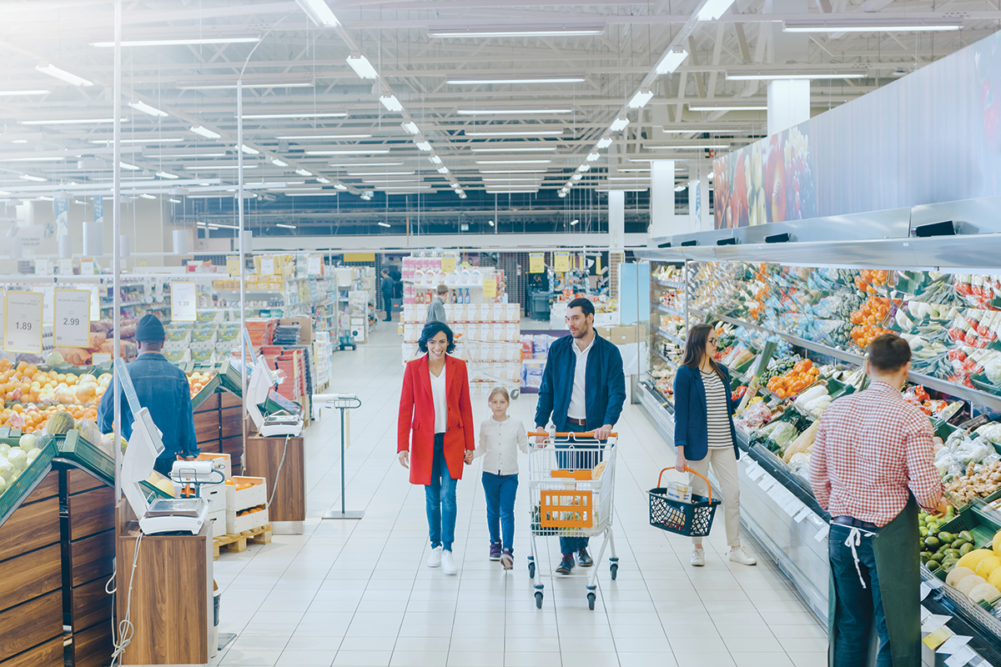An important but often overlooked aspect of retail grocery food safety is security.
Making sure that people walking the aisles don’t tamper with product — and catching them when they do and making sure they never do it again — is crucial to assuring loyal customers that their grocery store is a safe place to shop and one where maintaining the integrity of the products they buy is paramount.
Lionheart Security Services helps grocers and other retailers stop thieves and others who tamper with store merchandise.
Lionheart employees typically man the doors to stores and coordinate with store security on stopping people from stealing and committing other crimes instore.
“When they exit the store, we assist with escorting them back inside,” said Bill Herzog, Lionheart’s CEO. Lionheart has worked security for Walmart, Safeway, Trader Joe’s and other grocery retailers.
Theft is an increasing problem in grocery, and fresh foods are one of the top targets, Herzog said.
“Grocery stores are one of the first places people steal from, and it’s definitely growing with the economy the way it is right now,” he said. “Many people can’t afford to buy what they used to be able to. Shoplifting is worse.”
Grab-and-go deli sandwiches from the instore deli are a top target, Herzog said — they’re wrapped, easy to put in your pocket, don’t need to be cooked and provide quick nourishment. Fresh fruit is another category hard-hit in the perimeter.
Herzog admits that such crimes are hardly on the level of an armed robbery.
“You’re not going to fight with somebody over a $5 sandwich,” he said. “Our clients dictate what level of security they want.”
Instore communication
Another firm that helps grocery stores with instore security is Hq98, which coordinates the use of Motorola, Kenwood and other two-way radios for its customers, customizing programs to fit their specific needs.
For grocery, that often means protecting baby formula and other items that are locked in cases, said Stewart McClintic, the company’s CEO.
Customers hit a call button located next to the cases, which sends a signal out to all employees who have a two-way radio, expediting the transfer of those products to shoppers’ carts or baskets.
Two-way radios are a more contemporary solution to problems that used to be solved using a loudspeaker broadcast to everyone in the store, McClintic said.
“A lot of stores have transitioned away from that — it causes disturbance to customers,” he said.
When a food safety or other problem arises, it’s also much quicker to communicate by two-way radio and helps ensure that the right person for the job gets alerted.
Some customers give radios to all of their employees, others just to managers and other key personnel, McClintic said. The bigger the store, the more likely the latter scenario.
Safeway and Kroger have been among Hq98’s retail customers.
“A lot of the bigger chains are starting to implement them,” he said.
Unfortunately, much of that is due to increases in active shooter scenarios in stores.
McClintic said he hates to profit off of those fears, but there’s no doubt that the company does see an uptick in sales after tragic events.
Having the proper security in place can not only help protect against tragedies but also better ensure food safety on a day-to-day basis.

